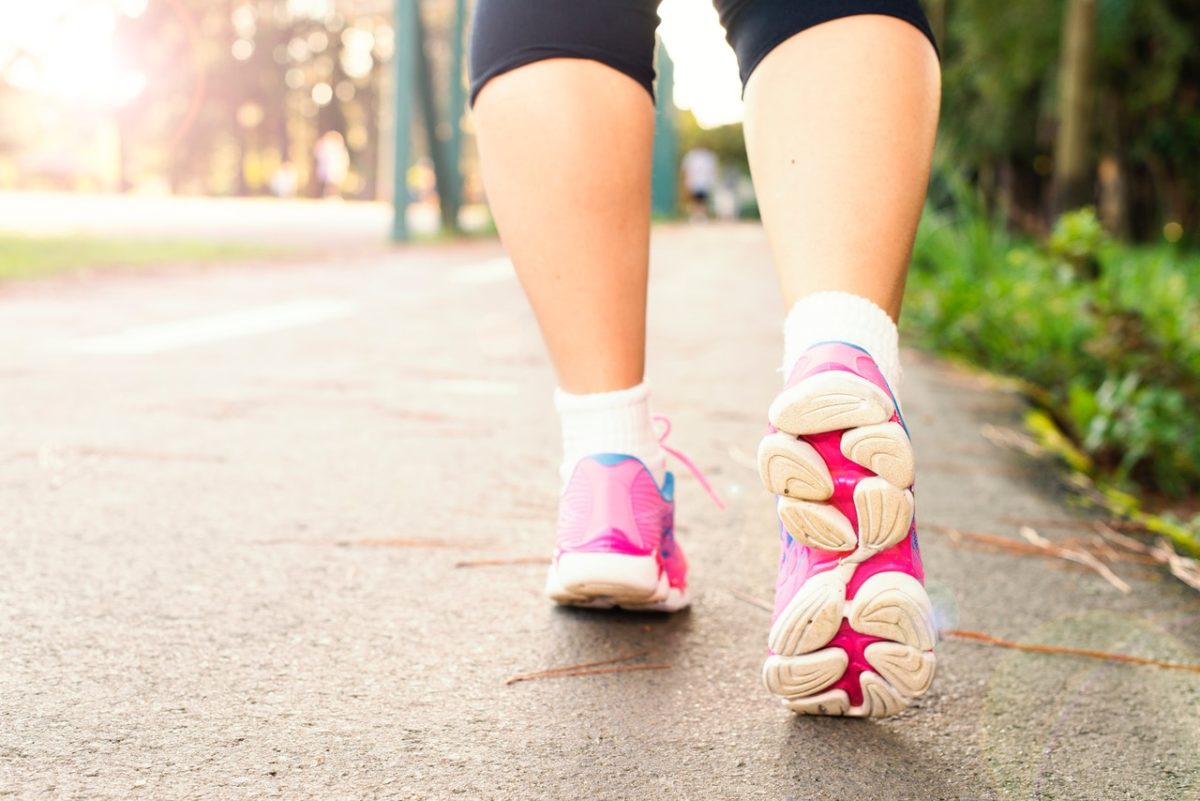Most of us, myself included, probably don’t embark on a new hobby and think that it’ll change our lives. When I began training for my first marathon in 2007, it was strictly a bucket-list thing, something that’d surely be “one and done” because who would want to keep training for, and running, such an arduous race? As it turns out: me.
Though I ran in my youth, on my middle school and high school track teams, training for and running my first marathon wholeheartedly changed my life in 2007. Of course, some changes were to be expected – things like my body composition, what types of food began making their way into my daily diet (and what foods no longer appealed to me) – but many of the changes were things that I wouldn’t have expected. Training for, running, and racing marathons has helped make me into a better version of myself.
Part of the reason that I gravitate toward running is because of the sport’s simplicity. Sure, you can easily get bogged-down in the equipment and the gear if you’d like to, but really, all you need is a safe place to run, the will to run, and a pair of shoes – the latter being a maybe for some people – and you can get out there and call yourself a runner.
As strange as it sounds, I think there’s an inherent beauty to participating in a daily ritual, that happens to be a sport, that our ancestors for all of humanity as we know it have done. While I’ll obviously never have the chance to meet my great-great-great-great-great (you get the picture) relatives, I find it so neat to know that I am doing the same activity that they once did, albeit thousands of years later. In this way, running has both let me live in the present but still acknowledge and remember the past. My sport gives way to deep reflection and introspection, and I’d like to think that it’s in these moments when I’m making my way across the trail or path that I’m connecting with my ancestors.
Running is also one of those activities that keeps me coming back for more due to all the different types of feedback I can take from it. I could train to run a race as short as 100-800 meters on a track, as long as 100-plus milers out on some wild and technical trails somewhere, or some distance in between that loops through residential neighborhoods and downtown business districts. Consequently, while the activity that binds all of these races together is the same – running – how I’d approach training for them is drastically different.
Therein lies another beautiful thing about this sport: namely, that I can approach the same task virtually hundreds of different ways, receive feedback, and then adjust my plan of attack accordingly.
It’s in what can sometimes be the minutia of training for a running event that I learn over and over again how important it is in my own life to be open to approaching tasks and challenges in many different ways. If I don’t, I can’t expect to receive different outcomes. The ability to get different types of feedback is rewarding, no doubt, but what’s arguably more rewarding is the opportunity to learn how to act (or in this case, run and train) to affect my own outcomes. You’d think that this would be obvious – if you want things to turn out differently, then change how you do them in the first place – but it’s so easy to fall into routines, for better or worse, day in and day out. We can’t do the same things all the time and hope for different results.
When I say that running has allowed me to become the best version of myself, it insinuates a form of internal competition, which admittedly sounds a little strange. There’s only one version of ourselves, right? I mean, there’s no other person who’s me, so how can there be a competition of me against … me? Training for endurance events has given me multiple opportunities to become a better version of myself because I get to constantly negotiate the tension and struggles of my own dreams and desires, as they relate to my running abilities and performance, against my current reality.
For example, I know that in order to achieve X in my running, I need to do Y – as unpleasant or as uncomfortable as it might be (running faster-than-normal paces or running shorter/longer-than-normal distances, for example) – and I know that a lot of the time, my inability to perform is rooted in some deeply-held insecurities I have about my abilities. It takes a lot of work to shut-down the negative self-talk and to toss out what I call the “mental garbage,” but it’s crucial. If I’m not going to be my biggest cheerleader, who will be? If I don’t believe in myself and my ability to put in the work day after day and ultimately achieve my dreams, who will?
I think many of us have the tendency to sell ourselves short for some reason, and continually challenging myself through running helps me surprise myself, time and again, that I’m capable of more than what I give myself credit for. It’s not to say that I’m infallible – I absolutely fail sometimes – but if I don’t give myself the chance to try, there’s no way that I’ll be successful.
Sometimes, showing up is the biggest victory.
Although training for and racing marathon-distance events (26.2 miles or 42 kilometers) is my preferred type of running, I recognize that it isn’t everyone’s cup of tea. It doesn’t matter. I’d argue that getting into a regular running routine, whether you are formally training for and later, completing an event or not, can still transform your life and how you view yourself. If you’re interested in starting, I’d first recommend the following:
Research where you can run. It can be as simple asheading right outside your front door to run through your neighborhood, or it can involve heading over to a nearby park or trail system or even running on a treadmill indoors; it doesn’t matter. Having options is helpful, and knowing where you are going to run can just help you plan accordingly, in terms of dressing for the elements.
Find a buddy. Running is a wonderful solitary activity, but it can also be very fun to do with a friend. Consider encouraging a buddy to come along for the ride – either by running with you or cycling alongside you – and I bet you’ll have more fun than you’d imagine.
Hire a coach, if you’d like. Depending on your immediate- and long-term goals, hiring a coach might not be a bad idea, especially if you’re getting started with running. Coaches typically bring with them years of personal experience in the sport as well as many years of helping develop others’ abilities. Plus, they can be a veritable wealth of information when you’re first starting out and can help you remain injury-free, which is critically important.
Just try it! Running might be a little awkward or uncomfortable at first, but don’t write it off entirely if you don’t feel like you are an Olympic all-star right from the start. It doesn’t necessarily get easier, per se; instead, you get stronger. Bank on it.
Take it one step at a time. Quite literally, running is an incredibly monotonous sport because all you do is put one foot in front of the other, repeatedly, hundreds if not thousands of times, and bound yourself in a generally-forward direction. Don’t get too far ahead of yourself, especially if things don’t come “naturally” to you at first. Comparison is the thief of joy, so don’t worry about how others perceive you or how you are faring against your peers. You do you; love the run you’re in.
Precious few other activities exist out there that we can say both we and our great-ancestors have done, but running is one of them. When I began seriously endurance-running training in 2007, I never would have imagined that it would have such a transformational effect on my life.
Give it – and yourself – a chance, and enjoy the journey that it takes you on.






Great article, your story is inspiring. I have seen my uncle going on some runs lately and looks fun. I even joined a few fun runs in my hometown.
Hi Dan,
I started running after a couple of years of walking and ended up running half marathons. I just did my third half marathon last month. Running has definitely changed me and I know that I will do it for the rest of my life. It helped me meditate and heal a I worked through my addiction problem and now it is part of my self care.
Thanks,
Bren
I’ve always enjouyed running, but didn’t take it seriously until a few years ago, and turned to sprinting, which I absolutely adore. I think that the greatthing about running is its simplicity, flexibility (you can lightly jog, or sprint like there’s no tommorrow), and has multiple mind-body health benefits. What do you feel about sprinting, and do you use it for training as you are a marathon runner